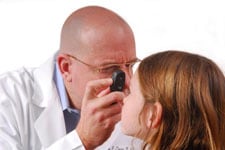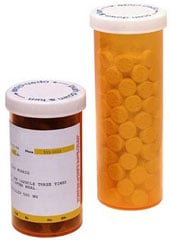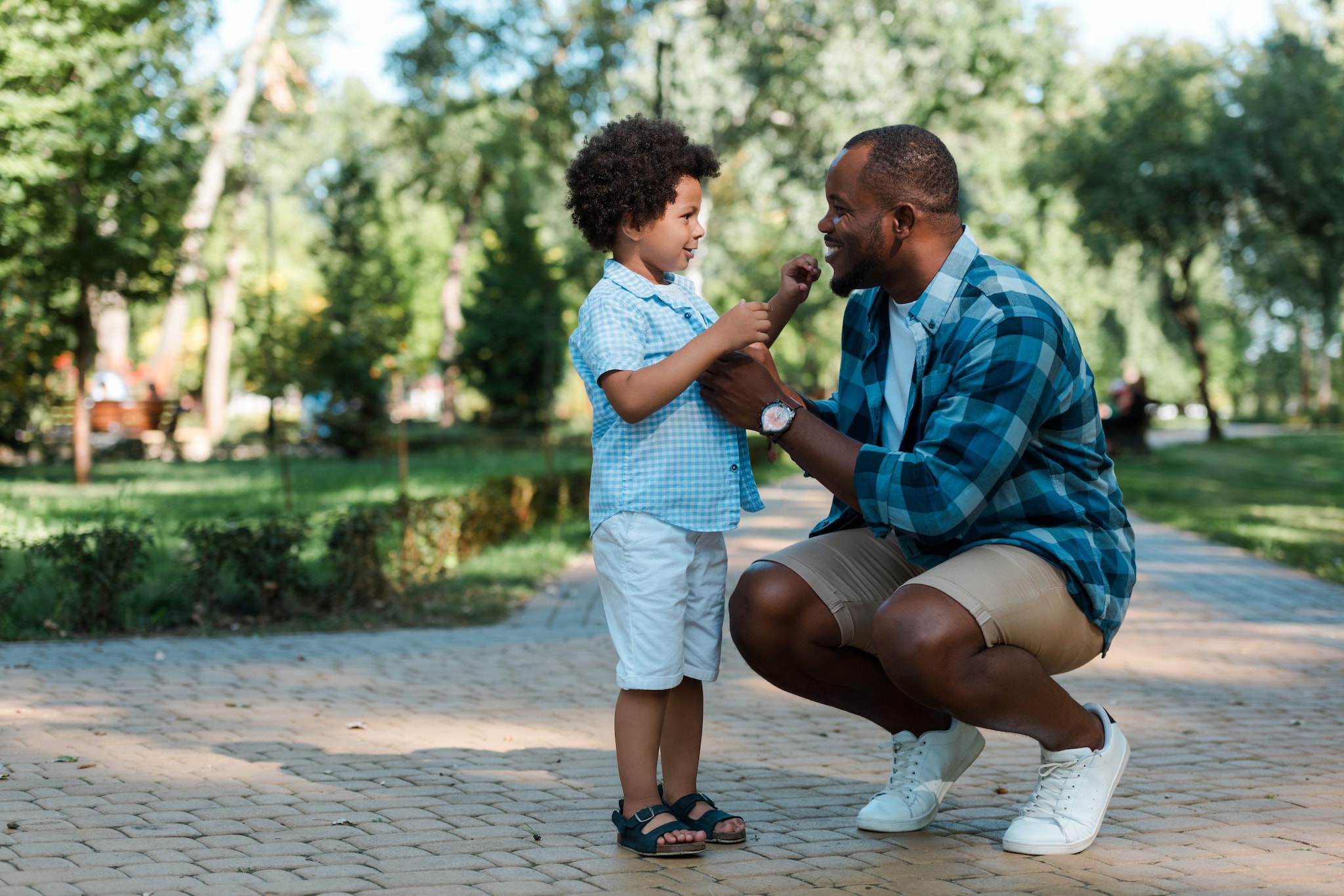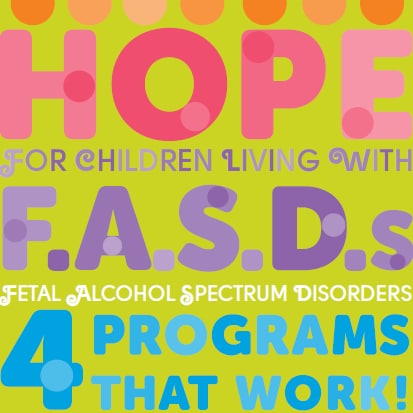FASDs: Treatments
CDC has provided the information on this page because it may be of interest to you. CDC does not necessarily endorse the views or information presented. CDC cannot answer personal medical questions. Please talk to your health care professional about specific questions concerning appropriate care, treatment, or other medical advice.
No two people with FASDs are exactly alike. Children with FASDs can have impairments in learning, memory, behavior, social interactions, or combinations of these impairments. Some children have poor growth, including reduced head size. A minority of children with FASDs have minor facial features that reflect problems in brain growth before birth. These symptoms and features can range from mild to severe. Treatment services for people with FASDs are most effective when they address a person’s specific impairments and build upon his or her own strengths.
Early Intervention Services
There is no cure for FASDs, but research shows that early intervention treatment services can improve a child’s development. Early intervention services help children from birth to 3 years of age (36 months) learn important skills. Services include therapy to help the child talk, walk, and interact with others. Therefore, it is important to talk to your child’s doctor as soon as possible if you think your child has an FASD or other developmental problem. In a majority of states, children with a diagnosis of fetal alcohol syndrome (FAS) are immediately eligible for early intervention services.
Even if your child has not received a diagnosis, he or she might qualify for early intervention treatment services. The Individuals with Disabilities Education Act (IDEA) says that children younger than 3 years of age who are at risk of having developmental delays may be eligible for services. The early intervention system in your state will help you have your child evaluated and provide services if your child qualifies.
In addition, treatments such as speech therapy for language delays, or physical therapy for motor issues, often do not need to wait for a formal diagnosis.
Learn more about child development, milestones, and delays »
Learn more about early intervention »
Protective Factors

Studies have shown that some positive factors can help reduce secondary effects of FASDs and help people with these conditions reach their full potential.1 Protective factors include:
- Early diagnosis
A child who is diagnosed at a young age can be placed in appropriate educational classes and get the social services needed to help the child and his or her family. Early diagnosis also helps families and school staff to understand why the child might act or react differently from other children sometimes. - Involvement in special education and social services
Children who receive special education geared towards their specific needs and learning style are more likely to reach their full potential. Children with FASDs have a wide range of of learning needs and behavior challenges that might need to be addressed. Special education programs can better meet each child’s needs. In addition, families of children with FASDs who receive social services, such as counseling or respite care have more positive experiences than families who do not receive such services. - Loving, nurturing, and stable home environment
Children with FASDs can be more sensitive than other children to disruptions, changes in lifestyle or routines, and harmful relationships. Therefore, having a loving, stable home life is very important for a child with an FASD. In addition, community and family support can help prevent secondary conditions, such as criminal behavior, unemployment, and incomplete education. - Absence of violence
People with FASDs who live in stable, non-abusive households or who do not become involved in youth violence are much less likely to develop secondary conditions than children who have been exposed to violence in their lives. Children with FASDs need to be taught other ways of showing their anger or frustration.
Types of Treatments
Several types of treatments are available for people with FASDs. They can generally be broken down into five categories:
Medical Care

People with FASDs have the same health and medical needs as people without FASDs. Like everyone else, they need well-baby care, vaccinations, good nutrition, exercise, hygiene, and basic medical care. But, for people with FASDs, concerns specific to the disorder must also be monitored and addressed either by a current doctor or through referral to a specialist. The types of treatments needed will be different for each person and depend upon the person’s symptoms.
Types of medical specialists might include:
- Pediatrician
- Primary care provider
- Geneticist/Dysmorphologist
- Otolaryngologist
- Audiologist
- Immunologist
- Neurologist
- Mental health professionals (child psychiatrist and psychologist, school psychologist, behavior management specialist)
- Opthalmologist
- Plastic surgeon
- Endocrinologist
- Gastroenterologist
- Nutritionist
- Speech-language pathologist
- Occupational therapist
- Physical therapist

Medication
No medications have been approved specifically to treat FASDs. But, several medications can help improve some of the symptoms of FASDs. For example, medication might help manage high energy levels, inability to focus, or depression.
Following are some examples of medications used to treat FASD symptoms:
- Stimulants
This type of medication is used to treat symptoms such as hyperactivity, problems paying attention, and poor impulse control, as well as other behavior issues. - Antidepressants
This type of medication is used to treat symptoms such as sad mood, loss of interest, sleep problems, school disruption, negativity, irritability, aggression, and anti-social behaviors. - Neuroleptics
This type of medication is used to treat symptoms such as aggression, anxiety, and certain other behavior problems. - Anti-anxiety drugs
This type of medication is used to treat symptoms of anxiety.
Medications can affect each child differently. One medication might work well for one child, but not for another. To find the right treatment, the doctor might try different medications and doses. It is important to work with your child’s doctor to find the treatment plan that works best for your child.
Behavior and Education Therapy
Behavior and education therapies can be important parts of treatment for children with FASDs. Although there are many different types of therapy for children with developmental disabilities, only a few have been scientifically tested specifically for children with FASDs.
Following are behavior and education therapies that have been shown to be effective for some children with FASDs:
- Good Buddies – A children’s friendship training to teach individuals with an FASD appropriate social skills1
Children with FASDs often have difficulty learning subtle social skills from their own experiences; those kinds of skills are typically “learned by osmosis” on the playground, such as how to slip into a group, appropriate sharing, or dealing with teasing. This intervention uses a group format to teach age-appropriate social skills over 12 weekly sessions for parent and child. Sessions are organized around and toward each child hosting a play date with a classmate or peer.
- Families Moving Forward (FMF) program to provide support for families who deal with challenging FASD behaviors2
This intervention is most appropriate for children with severe, clinically significant behavior problems based in part on positive behavior support techniques. It is a feasible, low-intensity, sustained model of supportive consultation with a parent or caregiver (rather than directly with the child). The intervention lasts 9 to 11 months, with at least 16 every-other-week sessions, typically lasting 90 minutes each. Services are carried out by mental health providers with specialized training.
- Math Interactive Learning Experience (MILE) program to help with mathematics difficulty3
Deficits in mathematical functioning have been reported consistently among alcohol-affected individuals. The MILE program is designed to improve the child’s mathematical knowledge and skill. Children complete 6 weeks of one-to-one tutoring using specifically adapted materials (eg, vertical number line, timers, etc.) that are appropriate to their academic level. Parents also receive training on behavioral regulation techniques to optimize the child’s readiness to learn.
- Parents and Children Together (PACT) a neurocognitive habilitation program to improve self-regulation and executive function4
Building upon techniques developed from the brain injury literature, this intervention used 12 weekly sessions with parents and children to address and improve behavior regulation and executive function (that is, planning, organizing, and understanding of others). It uses a particularly engaging metaphor of “how does my engine run” to teach children awareness of their current behavioral state and specific techniques for optimizing that state for the current situation.

Parent Training
Children with FASDs might not respond to the usual parenting practices. Parent training has been successful in educating parents about their child’s disability and about ways to teach their child many skills and help them cope with their FASD-related symptoms. Parent training can be done in groups or with individual families. Such programs are offered by therapists or in special classes.
Although each child is unique, the following parenting tips can be helpful:1-4
- Concentrate on your child’s strengths and talents
- Accept your child’s limitations
- Remember, much of your child’s challenging behavior is because of brain-based challenges rather than willful misbehavior
- Be consistent with everything (discipline, school, behaviors)
- Use concrete language and examples
- Use stable routines that do not change daily
- Keep it simple
- Be specific-say exactly what you mean
- Structure your child’s world to provide a foundation for daily living
- Use visual aides, music, and hands-on activities to help your child learn
- Use positive reinforcement often (praise, incentives)
- Supervise: friends, visits, routines
- Repeat, repeat, repeat
Families might need support from a family counselor or therapist. Parents might also benefit from local support groups, in which parents of children with FASDs can discuss concerns, ask questions, and find encouragement.
Contact FASD United’s (formerly NOFAS) Family Navigator program which provides individuals living with FASDs and their family members and caregivers with expert, confidential support and referrals. FASD United also has a searchable resource directory.
Alternative Approaches
With any disability, injury, or medical condition, many untested therapies become known and are promoted by informal networks. These therapies are referred to as alternative treatments. Before starting such a treatment, check it out carefully, and talk to your child’s doctor. Your child’s doctor will help you weigh the risks and benefits of these therapies.
Some of the alternative treatments used for people with FASDs include:
- Biofeedback
- Auditory training
- Relaxation therapy, visual imagery, and meditation (especially for sleep problems and anxiety)
- Creative art therapy
- Yoga and exercise
- Acupuncture and acupressure
- Massage, Reiki, and energy healing
- Vitamins, herbal supplements, and homeopathy
- Animal-assisted therapy
References
- O’Connor MJ, Frankel F, Paley B, et al. A controlled social skills training for children with fetal alcohol spectrum disorders. J Consult Clin Psychol. 2006;74(4):639–648.
- Carmichael Olson H, Leavitt S. Families Moving Forward. Platform Presentation on October 23, 2010. FASD Fall Conference at Emory University, Atlanta, GA
- Kable JA,Coles CD,Taddeo E. Socio-cognitive habilitation using the math interactive learning experience program for alcohol affected children. Alcohol Clin Exp Res. 2007; 31: 1425-1434. Bertrand J, Floyd L, Chasnoff I, Wells A, Bailey G, et al. Interventions for children with fetal alcohol spectrum disorders (FASDs): Overview of findings for five innovative research projects. Res Dev Disab. 2009;30(5):986–1006.
- Wells, A.M., Chasnoff, I.J., Schmidt, C.A., Telford, E., & Schwartz, L. (2012). Neurocognitive habilitation therapy for children with fetal alcohol spectrum disorders: An adaptation of the Alert Program®. American Journal of Occupational Therapy, 66, 24-34.
